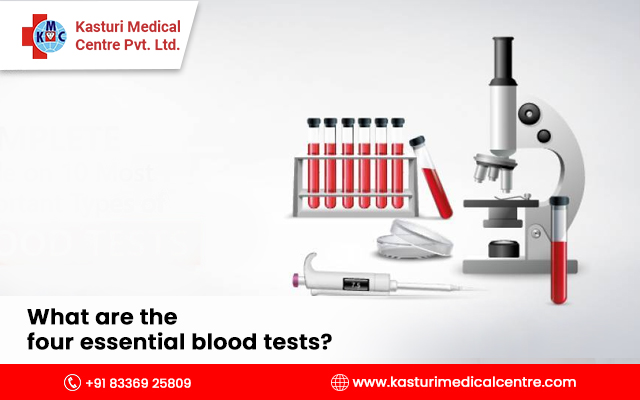There may be numerous reasons for taking a blood test. These tests provide important information regarding various health aspects that include blood cell count, metabolic function, cardiovascular issues and blood sugar levels. Taking a blood test in South Kolkata regularly will help in keeping a track of overall well-being.
Four essential blood tests
The four primary blood tests that are usually considered for an overall health assessment are as follows –
- Complete Blood Count (CBC)
The Complete Blood Count test provides vital information regarding the types and amount of cells in the blood which also includes hemoglobin, Red Blood Cells (RBCs), White Blood Cells (WBCs) and platelets.
Abnormality in these levels indicates the following –
- Nutritional deficiencies
- Anaemia (iron deficiency)
- Clotting problems
- Blood cancer
- Infection
- Immune system disorders
On the basis of the results from a CBC test, a follow-up may be recommended for confirmation of level abnormality and further diagnosis of conditions.
- Basic Metabolic Panel (BMP) or Comprehensive Metabolic Panel (CMP)
The different aspects of electrolyte balance and metabolic functions are assessed by these panels. Moreover, a BMP usually checks the levels of eight compounds present in the blood:
- Calcium
- Glucose
- Sodium
- Potassium
- Bicarbonate
- Chloride
- Blood urea nitrogen (BUN)
- Creatinine
Fasting may be required at least eight hours before the test, depending on instructions from the doctor.
Abnormal results may indicate diabetes, kidney disease and electrolyte imbalances.
A blood test done at a super speciality hospital in South Kolkata will gather data on biomarkers that affect your health, longevity and metabolic condition.
- Lipid Panel
This test measures levels of good and bad cholesterol as well as triglycerides present in the blood. These are critical indicators related to cardiovascular health. High-density lipoprotein is also known as good cholesterol as it removes toxic substances from the blood. Low-density lipoprotein or bad cholesterol increases the risk of cardiovascular disease as it causes plaque in the arteries.
- Blood Glucose Test
The blood glucose test measures glucose levels (sugar) contained in the blood and is used in diagnosis to monitor diabetes and prediabetes. It can be done either as a fasting blood glucose test, which is taken post-fasting overnight or as a postprandial test meaning regardless of fasting.
Conclusion
It is recommended that a blood test be done at least once a year as it is necessary for information gathering and proper diagnosis. To ensure accurate results, taking a blood test in South Kolkata will help you understand if there are any underlying health issues or problems that may crop up in the future.

